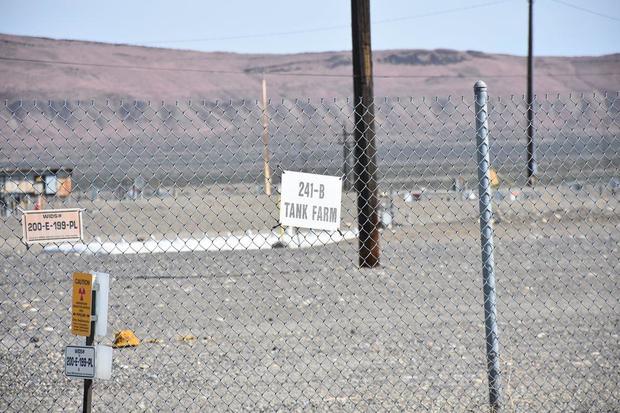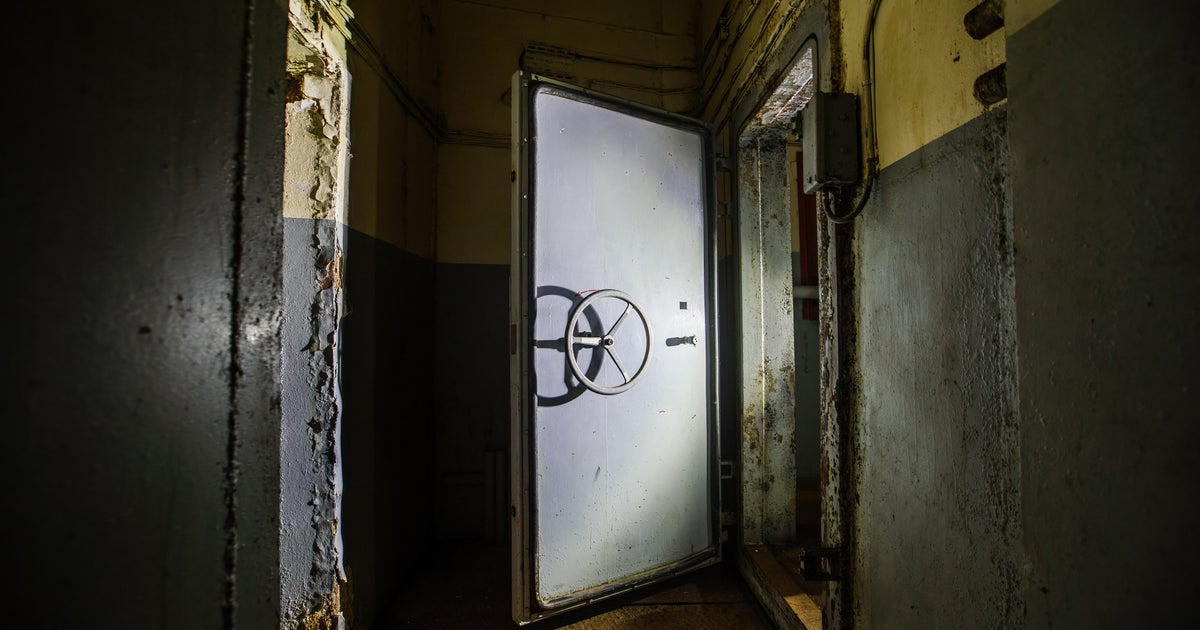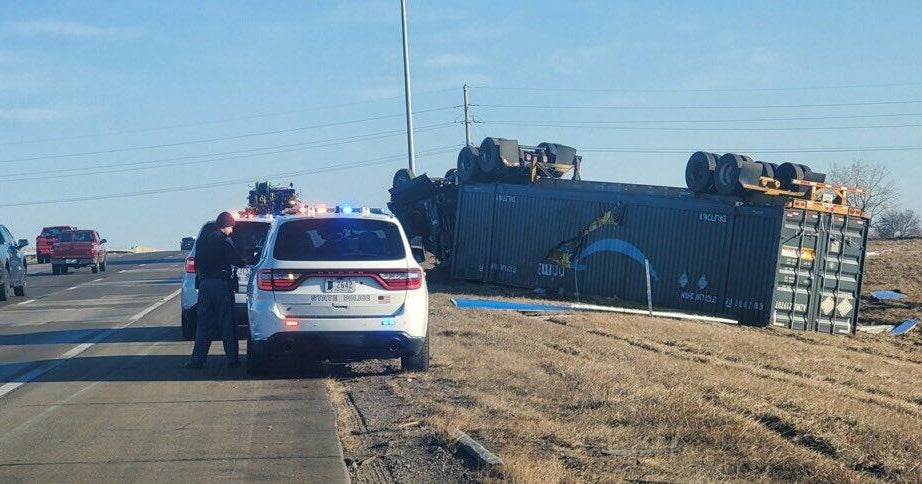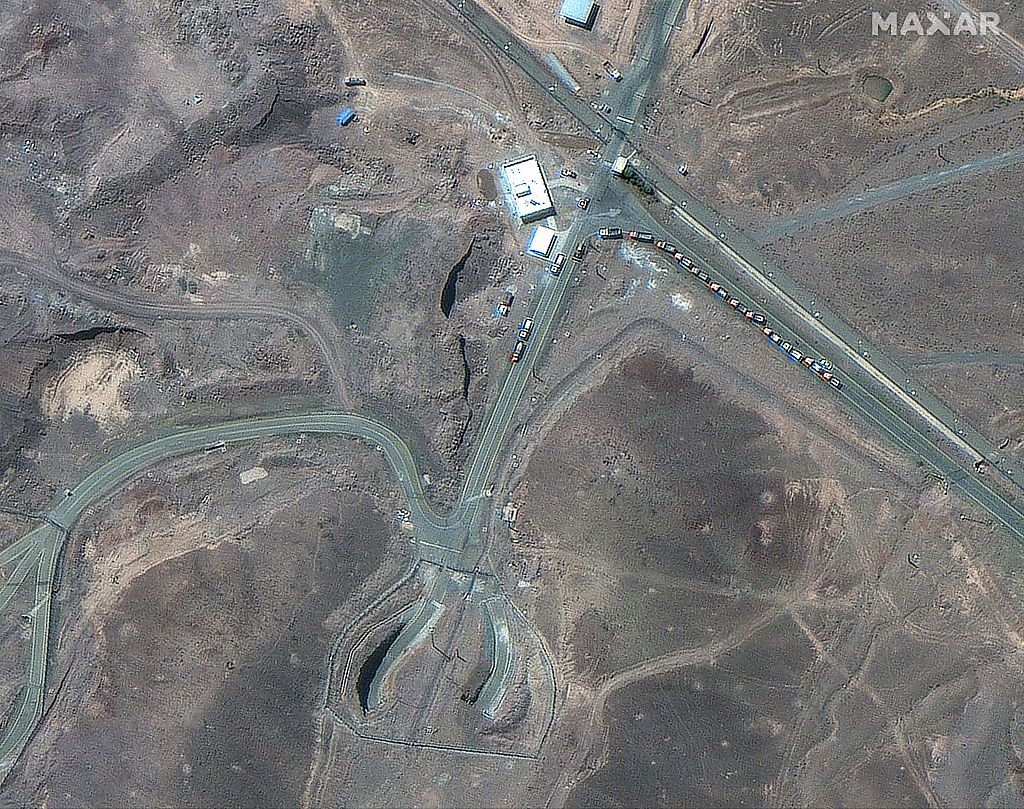An underground tank in Washington is leaking gallons of radioactive chemical waste
An underground radioactive chemical storage tank in southeast Washington state is leaking gallons of nuclear waste, according to the Washington State Department of Ecology, which is overseeing the site's cleanup.
The 75-year-old tank B-109 at Hanford Nuclear Reservation is estimated to be leaking 3.5 gallons of waste a day into the ground - the equivalent to nearly 1,300 gallons per year.
"This highlights the critical need for resources to address Hanford's aging tanks, which will continue to fail and leak over time," Laura Watson, the department's director, said in a statement.
The tank holds 123,000 gallons of waste and is leaking into an area where an estimated 200,000 gallons have already leaked from other tanks at the site, the state's Department of Ecology said. Since March of 2019, an estimated 1,700 gallons of waste have leaked from B-109, which the department has been tracking for over a year.
Randy Bradbury, a department spokesman, told CBS News his agency recognized the tank's liquid level was decreasing more than a year ago but they weren't sure of the cause. But on Thursday, the U.S. Department of Energy notified the Washington agency that the tank was indeed leaking.
After the leak was discovered by a contractor, the Department of Energy sent a message Thursday to Hanford Site employees saying the tank had been "previously emptied of pumpable liquids, leaving a very small amount of liquid waste in the tank." An assessment showed the tank was releasing a "small, slowly decreasing level of liquid" that poses "no increased health or safety risk to Hanford workers or the public."
"Contamination in this area is not a new issue and mitigation actions have been in place for decades," the announcement said.
The Hanford Nuclear Reservation, which was constructed during World War II to make plutonium for nuclear weapons, includes tanks that contain various mixed waste materials made of both radioactive components and some of the "most dangerous waste created over four decades," according to Washington's Department of Ecology. In the past, more than 67 tanks at the reservation have been suspected to be leaking or have actually leaked.
An environmental impact statement from the National Environmental Policy Act said that "numerous geologic problems with the Hanford Reservation have been pointed out."
"Leaving the waste in the ground is just not acceptable," the statement read. "There is not enough information to take a chance on leaving any radioactive waste in the ground."
And controlling a tank leak is what Bradbury said will take years to address.
"They're all very well into the ground," Bradbury said. "This isn't something that's going to happen next week or next month."
But Watson said that as of now "the leak poses no immediate increased risk to workers or the public, but it adds to the ongoing environmental threat at Hanford."
Bradbury said that the department's main concern is preventing the waste from reaching the Columbia River, which is only 10 miles away from B-109.
"It will just basically sit around in the soil but in fact, it does migrate and some of it has migrated," he said.
Local organizations have called on legislators to address the site's repeated tank leaks.
"This new leak of B-109 puts a spotlight on the need for Congress and the Energy Department to act immediately to increase funding for cleanup and design and build new tanks, as soon as possible," the Hanford Challenge, a nonprofit advocacy organization, released in a statement Thursday. "Hanford needs new tanks now."
The group has gathered nearly 2,000 signatures on a petition addressed to the U.S. Secretary of Energy to build new tanks at the reservation.




